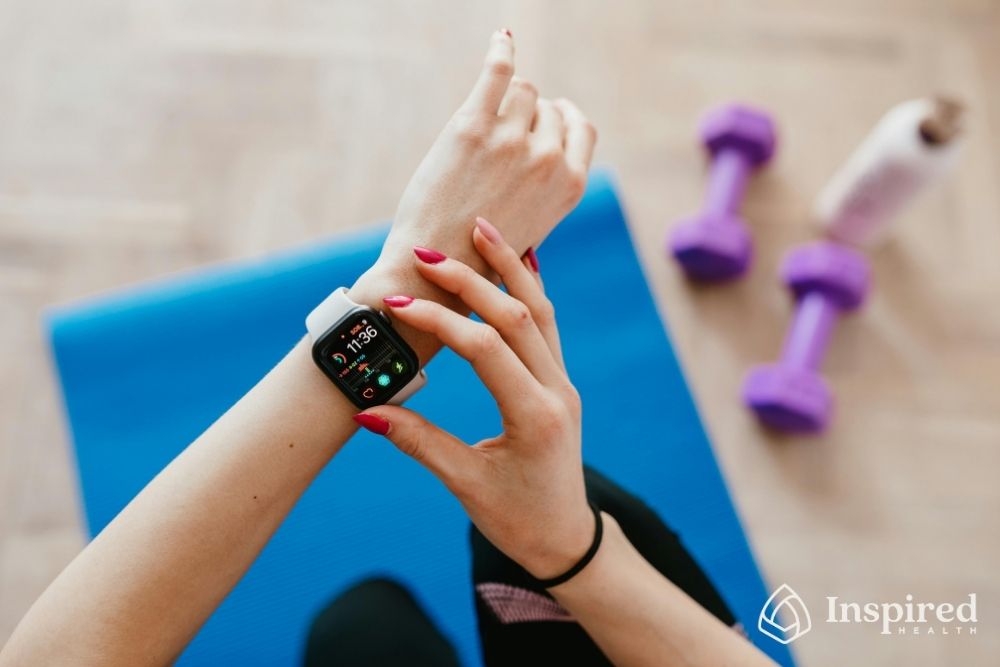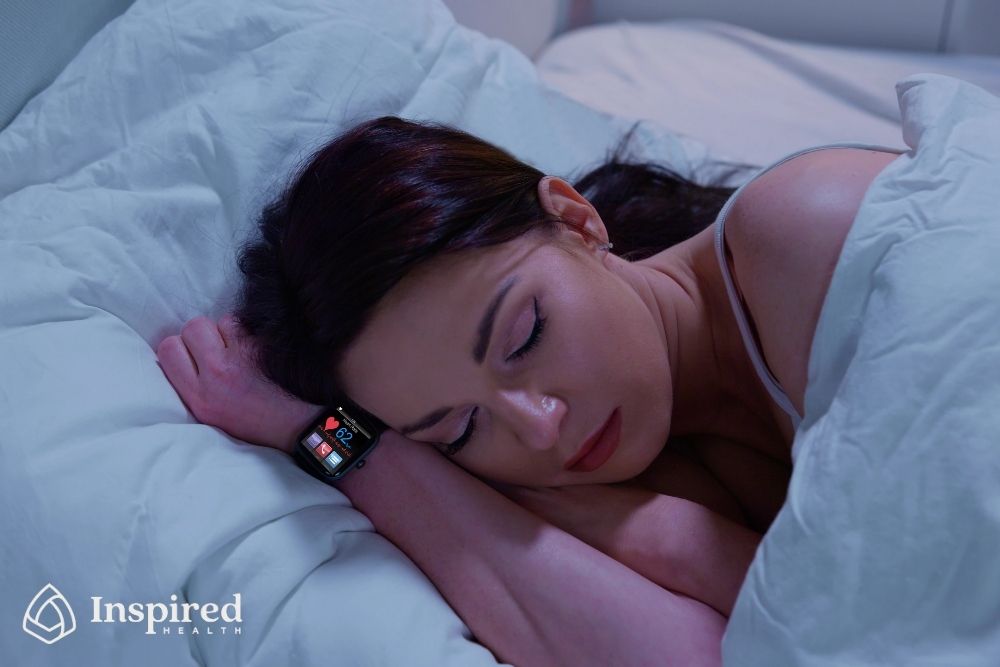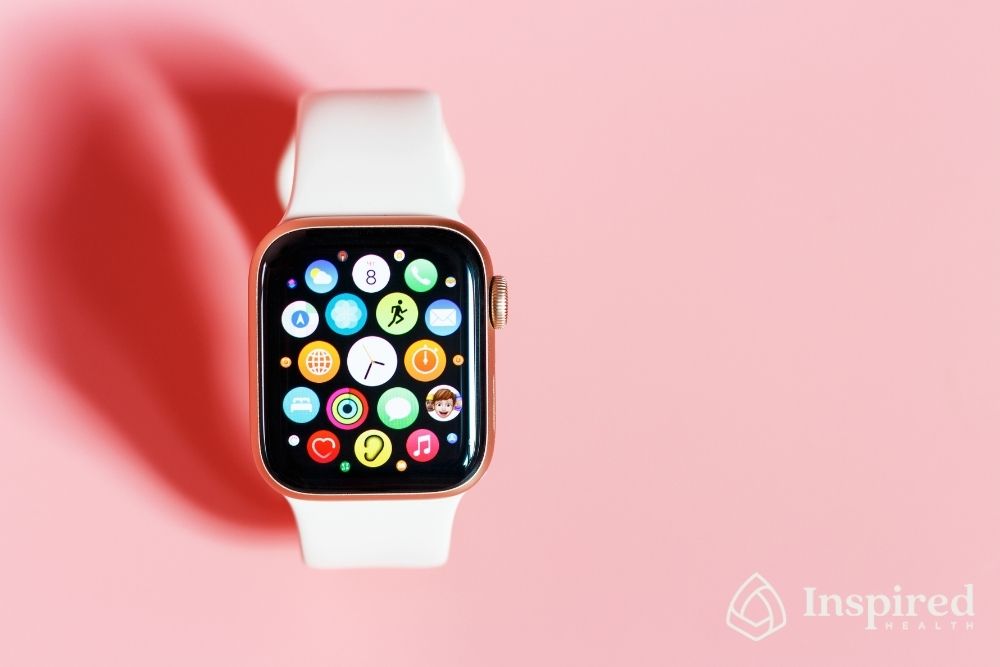Wearable Tech Challenge
We have a challenge for you this month! If you consistently wear a tracker of any sort, like a Garmin or Apple watch, Whoop band, or Oura Ring, we’d like you to take it off and put it in a drawer, ideally for a whole week, but if that feels like too much, start with a day. Leave your watch at home on your next run or walk, take off your Whoop or Oura ring before bed. Allow yourself a break from the tech and a chance to tune into how your body actually feels. Maybe write down any observations during the week as they come up for you.

In an age where data is literally at our fingertips, it’s easy to assume that wearable tech like smartwatches, fitness trackers, and sleep monitors can help us achieve better health. These devices can offer helpful insights, from heart rate variability to sleep patterns and step counts. For many, they serve as motivation to move more, sleep better, and pay closer attention to our wellness routines, and there’s nothing wrong with that!
While wearable technology can offer valuable glimpses into your daily patterns, it often captures only part of the picture. By pairing these tools with a more holistic, individualized Functional Medicine approach, you can gain deeper insight into your body’s needs. Let’s explore how wearable tech fits into the bigger picture, and how to use it in a way that truly supports your well-being.
Data Doesn’t Always Equal Diagnosis
Wearable devices collect data, but data alone doesn’t equal understanding or accuracy. For example:
- Sleep tracking may misrepresent actual sleep stages.
- Heart rate variability (HRV) can fluctuate wildly based on stress, hydration, or even how tight the strap is.
- Calorie burn estimates are often significantly off, depending on the algorithm and individual physiology.
These inaccuracies can lead to misguided decisions about nutrition, exercise, or rest. What your wearable tells you might not reflect what your body actually needs.

Over-Quantification Can Disconnect You From Your Body
Body awareness is a key factor in health – tuning into hunger, energy, mood, and stress signals. Wearables, while well-intentioned, can make people outsource that awareness to a screen. For example, you might feel well-rested, but if your tracker says you had “poor sleep,” you start the day feeling anxious.
This reliance on external validation can erode trust in your own body’s cues, something we work hard to rebuild in Functional Medicine.
Data Overload Can Increase Stress
More information doesn’t always mean better outcomes. Many users of wearable tech report feeling overwhelmed, stressed, or even guilty when their metrics don’t meet expectations.
- Constantly tracking steps, calories, or readiness scores can fuel obsessive behaviors.
- “Sleep anxiety” is a growing phenomenon where people stress over tracker-reported sleep quality—ironically making sleep worse.
When self-optimization becomes self-criticism, the tool becomes a trap.

One-Size-Fits-All Metrics Miss Individual Nuance
Wearables apply generalized formulas to complex biological systems. But your health isn’t generic – it’s uniquely yours. For example:
- Two people may need different recovery periods despite having similar HRV (heart rate variability) scores.
- Nutrient needs, stress response, and detox pathways aren’t detectable by your wristband.
Functional medicine takes into account your genetics, microbiome, environment, lifestyle, and lab data, offering a level of personalization no device can currently replicate.
Wearables Can Distract From the Root Cause
Finally, wearable data may highlight symptoms—like poor sleep, fatigue, or irregular heart rate—but they don’t address why those symptoms are happening.
Is your poor sleep caused by gut inflammation or hormone imbalance? Is your stress response rooted in unresolved trauma? Is fatigue a result of thyroid dysfunction?
A Better Approach: Use Tech Mindfully, Not Mindlessly
There’s no need to be anti-technology, in fact, wearables can be helpful tools when used appropriately. But they should supplement your health journey, not replace intuition, professional insight, or comprehensive testing.
If you enjoy using a wearable health device, ask yourself:
- Is this helping me better understand my body—or just increasing anxiety?
- Am I using this data as a guide or as fact?
- Do I still take time to check in with how I actually feel in my body?
Wearable tech can give a snapshot, but true health requires a wide-angle lens, one that considers your lifestyle, biochemistry, mental health, and environment. At Inspired Health, we’re here to help you interpret the signals your body is sending and create a personalized plan that goes far deeper than any device can.


Want more Inspired tips?
Be sure to follow us on Instagram, Facebook, and Pinterest.
Also, sign up for our newsletter!
Visit us in-person at Inspired Health, or schedule a TeleHealth appointment!
References
- Canali S, Schiaffonati V, Aliverti A. Challenges and recommendations for wearable devices in digital health: Data quality, interoperability, health equity, fairness. PLOS Digit Health. 2022
- Huhn S, Axt M, Gunga HC, Maggioni MA, Munga S, Obor D, Sié A, Boudo V, Bunker A, Sauerborn R, Bärnighausen T, Barteit S. The Impact of Wearable Technologies in Health Research: Scoping Review. JMIR Mhealth Uhealth. 2022
- Kang HS, Exworthy M. Wearing the Future-Wearables to Empower Users to Take Greater Responsibility for Their Health and Care: Scoping Review. JMIR Mhealth Uhealth. 2022






